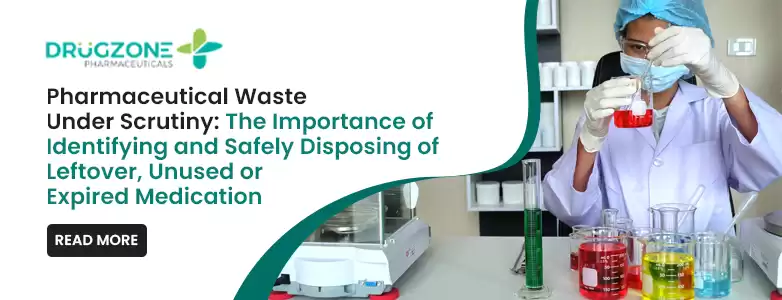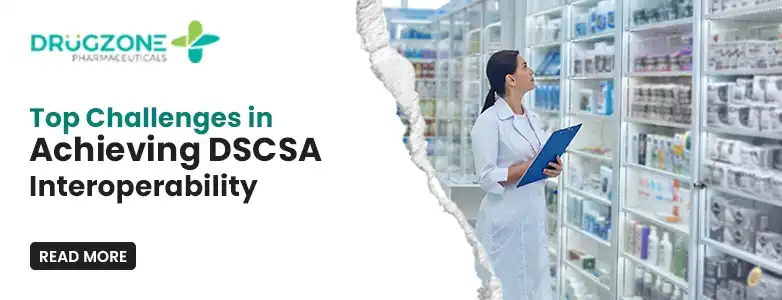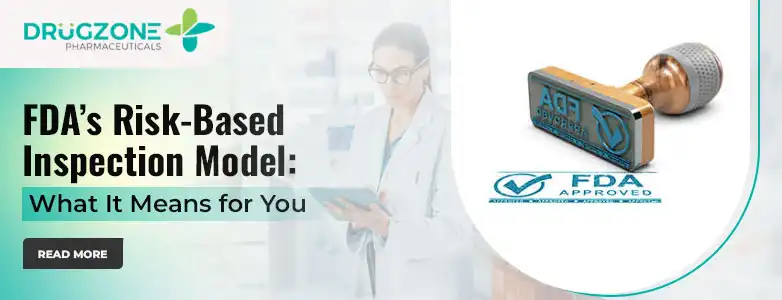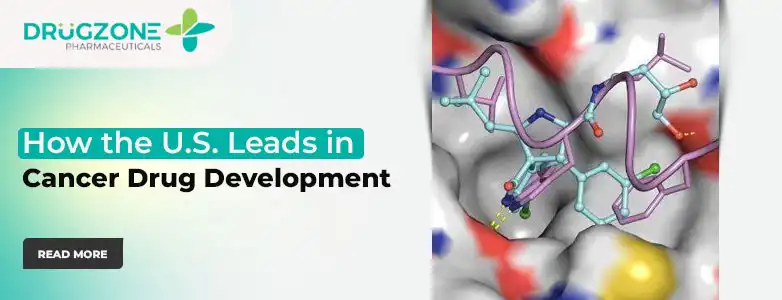
Posted On: April 26, 2024
Pharmaceutical Waste Under Scrutiny: The Importance of Identifying and Safely Disposing of Leftover, Unused or Expired Medication
The journey of a medicine, from production to disposal, is complex. Without careful management, these medicines can pollute rivers or end up in landfills, potentially harming wildlife and possibly impacting human health.
For facilities like hospitals and pharmacies, which handle a wide variety of medicines, identifying the proper disposal methods is crucial.
Contract pharmaceutical companies play a key role in this whole process. These companies not only make medicines but they can also lead the way in how we think about and manage waste. They're in a prime position to innovate and help everyone, from hospitals to the end consumer, understand how to dispose of medications safely and responsibly.
Why is Pharmaceutical Waste Management Important?
Old, unused, and leftover drugs present dangers, such as the risk of accidental poisoning, misuse, and contributing to the alarming trend of antibiotic resistance.
To navigate these challenges, it is vital to execute the following steps -
Identification of Waste
The journey begins with identifying those medications that aren’t quite like the others - the hazardous ones. Recognizing them allows us to treat them differently, ensuring they’re managed safely.
Segregation and Labeling
After pinpointing the hazardous medicines, extra steps are taken to separate them and clearly mark them. This way, anyone coming across them knows they need to handle these with care, keeping everyone in the loop and safe.
Collaboration with Contract Pharmaceutical Companies
The contract pharmaceutical companies are invaluable allies. They bring their expertise to the table, offering insights on minimizing waste and guiding on how to dispose of medicines without harming our environment.
Education and Training
It’s vital that everyone connected to the pharmaceutical world is well-informed about the potential risks and knows the ins and outs of disposing of medicine waste properly.
By staying educated and keeping our training fresh, we ensure we're always doing our best to protect each other and our planet.
Strategies for Safe Disposal of Pharmaceutical Waste
Here are some steps we can take to handle medicine waste the right way -
Implement Drug Take-Back Programs
Getting people to bring back their unused or old medicines can prevent harm to the environment and stop them from being used inefficiently.
Partner with Certified Waste Disposal Services
Some medicines, like strong painkillers, need to be completely destroyed so they can't cause harm. Technologies like burning them up can help ensure that.
Utilize Destruction Technologies
Some medications require more than just traditional disposal methods. Prescription drugs like opioids may need to be rendered unrecoverable through processes such as incineration.
Audit and Monitor Waste Streams
Regularly looking at how we handle waste helps us get better and makes sure we're following the rules.
Promote Sustainable Practices in Contract Manufacturing
We can encourage the companies that make medicines to use processes that don't create as much waste to begin with.
Final Thoughts
Contract pharmaceutical companies are so important for making things better too. By thinking differently about the whole life cycle of medicines, we're helping everyone. Together, we're not just solving a problem, we're leading the way to a healthier, greener world.
FAQs
Q. Can contract pharmaceutical companies help mitigate pharmaceutical waste?
Yes, contract pharmaceutical companies are centrally placed to affect the lifecycle of medications, including their disposal. They can create awareness, facilitate take-back programs, and inform proper disposal practices.
Q. How can drug distributors safely dispose of unused or expired medication?
Unused or expired medication should be taken to a designated take-back location or disposed of through mail-back programs when available. Always follow your local guidelines or pharmacy suggestions on medication disposal.
Q. What is the role of hospital management in managing pharmaceutical waste?
Hospital management is responsible for ensuring that proper disposal protocols are followed, that staff are well-trained in these protocols, and that the facility complies with all regulatory requirements.
Incorporating these strategies into daily operations and patient care is, undoubtedly, a step in the right direction towards a more sustainable and health-conscious future.










